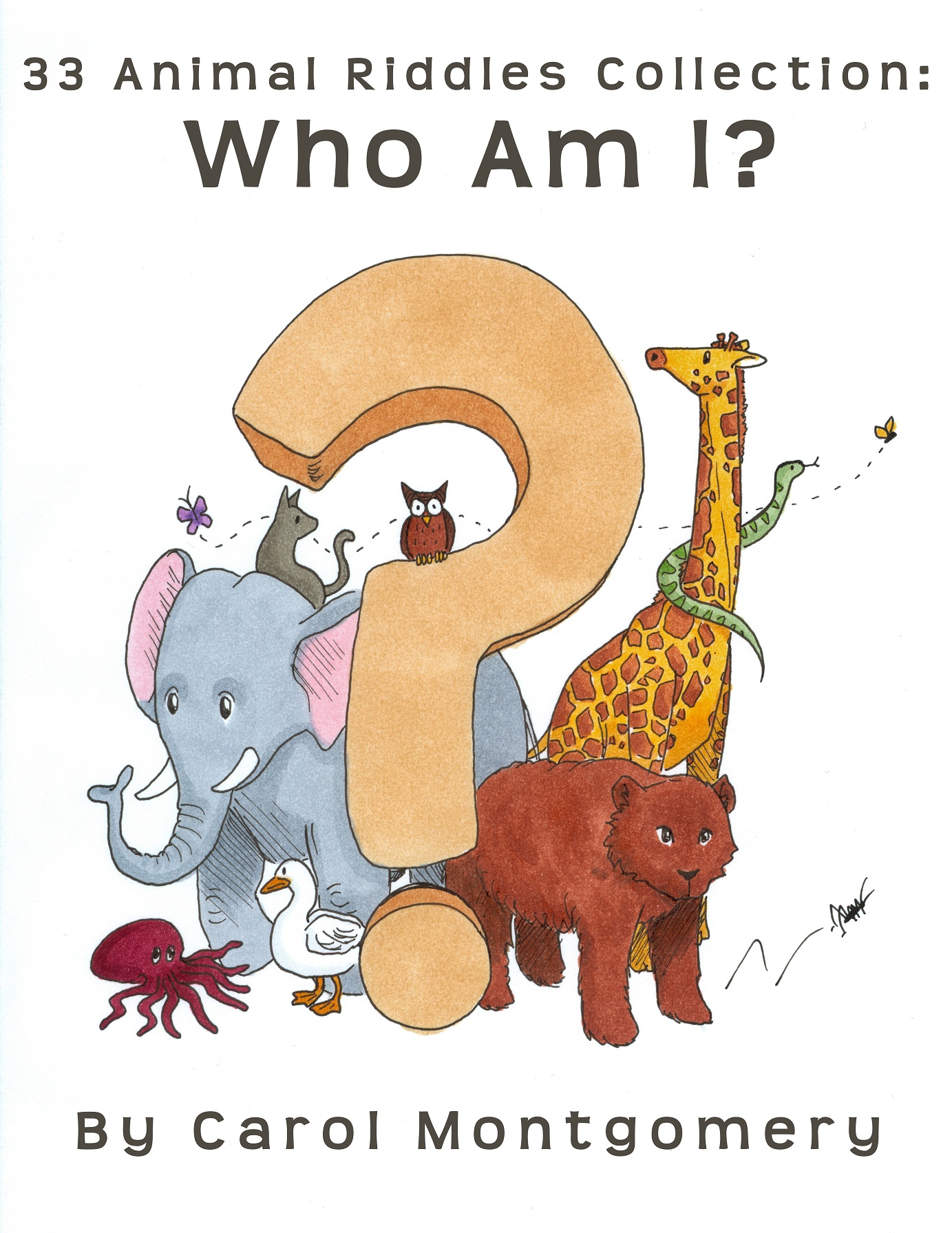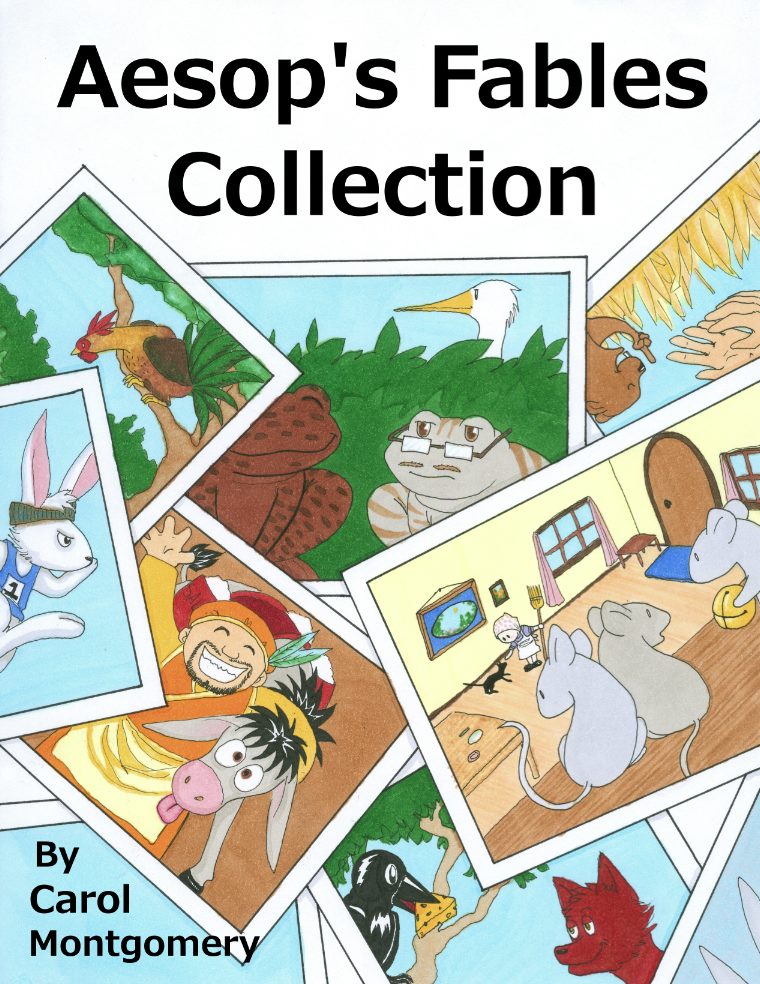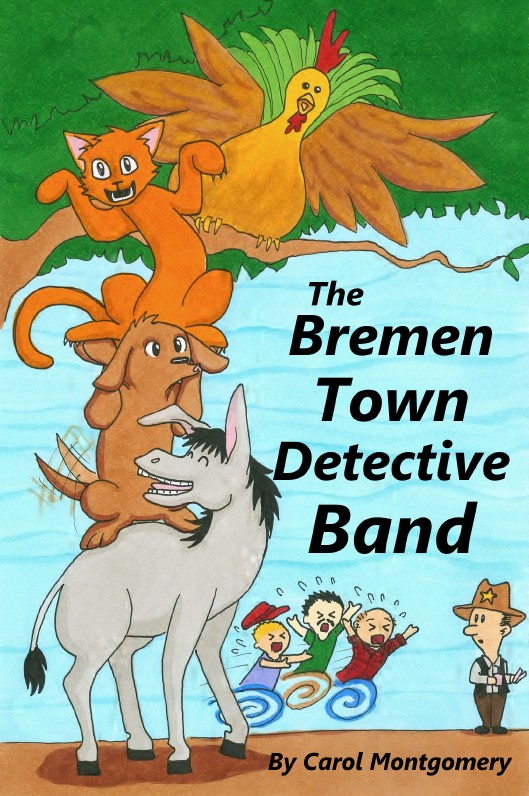 "Sam" (not his real name) struggled with English because it was not his first language. He lacked confidence. He was quiet and shy. He rarely volunteered in his English Language Learners (ELL) group. All that changed when Sam's ELL teacher discovered Readers Theater.
"Sam" (not his real name) struggled with English because it was not his first language. He lacked confidence. He was quiet and shy. He rarely volunteered in his English Language Learners (ELL) group. All that changed when Sam's ELL teacher discovered Readers Theater.
Sam sat quietly, listening to the teacher introduce our script, "Pet Shop Stop." When the ELL teacher mentioned the cast options she changed her voice to sound like an old man for the part of Grandpa. I'm guessing that Sam and the other students smiled when he heard her Grandpa voice.
Sam's teacher told me that after she introduced the parts available for the students in the script she asked for volunteers for each part. Sam surprised his teacher and the other students by volunteering to read the part of Grandpa. But, he didn't stop there.
I'm not sure exactly when Sam blossomed. Was it on the first reading of the script aloud or did he improve with practice? It doesn't make any difference. Sam connected with the story and shocked everyone with his wonderful interpretation of Grandpa. He read fluently with confidence in his own Grandpa voice. His teacher was thrilled.
Sam's story is not unusual. Readers Theater naturally builds confidence, fluency, and lifelong skills. By choosing trustworthy scripts your students, too, can develop character, confidence, fluency, and leadership skills. Leadership skills? Yes! Readers Theater builds leaders and creators effortlessly.
This is Part #1 of a series of seven articles (some still to be written) on how Readers Theater can easily build character, confidence, fluency, and leadership skills in your students. Part #1 of this series covers oral reading. Below are a few thoughts, tips, and a challenge for you regarding Readers Theater in YOUR classroom.
Oral Reading
Everyone needs to read aloud at some point in life. Readers Theater provides wonderful practice that motivates readers to improve oral reading skills. Students learn to read clearly with proper expression as they practice reading Readers Theater scripts–especially when their teachers and classmates encourage them.
Have you heard students or even adults struggling to read aloud word...by...painful...word?
Have you heard important literature, documents, or information read aloud in a boring monotone?
Have YOU tried reading aloud a college text that you didn't understand and ended up with mispronunciations, poor phrasing, or "miscues" because you didn't understand what you were reading?
Try reading the following paragraph from a college textbook aloud BEFORE you read it silently. (If you're interested in reading more of this sample text from Princeton University Press, just click the link for the PDF that references Chapter One of the college textbook Adaptive Control of Parabolic PDEs.) Excerpt:
The backstepping approach in control of nonlinear ODEs "matches" nonlinearities unmatched by the control input by using a combination of a diffeomorphic change of coordinates and feedback. In this book we pursue a continuum equivalent of this approach and build a change of variables, which involves a Volterra integral operator (which has a lower-triangular structure, just as backstepping transformations for nonlinear ODEs do) that "absorbs" the destabilizing terms acting in the domain and allow the control to completely eliminate their effect acting only from the boundary.
How did you do? If you had good phonics training you probably navigated that passage just fine–including the word "diffeomorphic." But, how did you FEEL reading it? Were you confident? Intimidated? Confused? Proud? Amused?
I know I read the passage aloud okay, but I had read it silently first. No matter how many times I have read it, though, I STILL don't understand what they're explaining! It's difficult to understand because I don't have the background, or the vocabulary for the topic.
What can that example teach us about oral reading and Readers Theater?
Tip #1: Introduce new vocabulary as needed when you introduce a new Readers Theater script. Some teachers introduce vocabulary words ahead of time, while others introduce vocabulary during the first reading of the script. If you introduce your script with choral reading, you may just stop at particular words that you want to highlight. Give the pronunciation and explain the meaning. Then go back and read the sentence aloud in context.
Tip #2: Make sure that your students have a little background for the topic. Readers Theater works well any place in a lesson plan or unit study. If you use it as a "hook" at the beginning of a unit study, students will be motivated to learn more. If you enjoy Readers Theater in the middle of a unit, students will be recharged on the topic. And, if you choose to review your topic with Readers Theater, remember you don't have to find an appropriate script. Let your students write their own scripts in small groups!
Tip #3: Include discussion opportunities or graphic organizers to ensure that students comprehend the text. In the college text excerpt (above) you could probably read the passage aloud fairly well with proper pronunciation and interpretation of the text. Your prosody was probably acceptable for that type of text. However, sometimes in dialogue and stories students will need proper expressiveness, intonation, rhythm, and emphasis to communicate the story better. That's called prosody–a key component of speech.
The Boy Frederick Douglass Read Aloud
According to the well-researched book, Abraham Lincoln & Frederick Douglass–The Story Behind an American Friendship (by Russell Freedman), at thirteen Frederick Douglass (a slave) bought a used copy of a popular book: The Columbian Orator, "a collection of speeches and dialogues about freedom, democracy, and courage." While running errands Douglass would often pull the book out of his pocket and find a private spot to read in secret.
Then, Douglass "would pull The Columbian Orator out of his pocket and read aloud, listening to the sound of his voice as he recited some of the great speeches of the past" (p. 9). Many believe that his repeated practice of reading that book aloud helped build his skills as a public speaker influencing others to embrace the abolitionist's cause.
You can imagine that Frederick Douglass experimented with prosody for the greatest impact. He probably listened to his phrasing, intonation, rhythm, emphasis, and timing as he read his book aloud. I believe hearing himself read well increased his confidence. Students often experience a boost in confidence as oral reading skills improve.
Since reading aloud with expression is a foundational reading skill, doesn't it make sense to give students REGULAR practice reading aloud? Readers Theater makes practice fun! And, regular Readers Theater simplifies your lesson planning while building many lifelong skills.
Choose trustworthy and character-building scripts. Students enjoy both fiction and non-fiction Readers Theater. Some teachers even collect a "library" of scripts and let their students choose some scripts to practice. Have YOU started your Readers Theater script library yet? Why not simplify your life by starting YOUR Readers Theater script library with our growing Script Buffet?





 "Sam" (not his real name) struggled with English because it was not his first language. He lacked confidence. He was quiet and shy. He rarely volunteered in his English Language Learners (ELL) group. All that changed when Sam's ELL teacher discovered Readers Theater.
"Sam" (not his real name) struggled with English because it was not his first language. He lacked confidence. He was quiet and shy. He rarely volunteered in his English Language Learners (ELL) group. All that changed when Sam's ELL teacher discovered Readers Theater.



.jpg)

